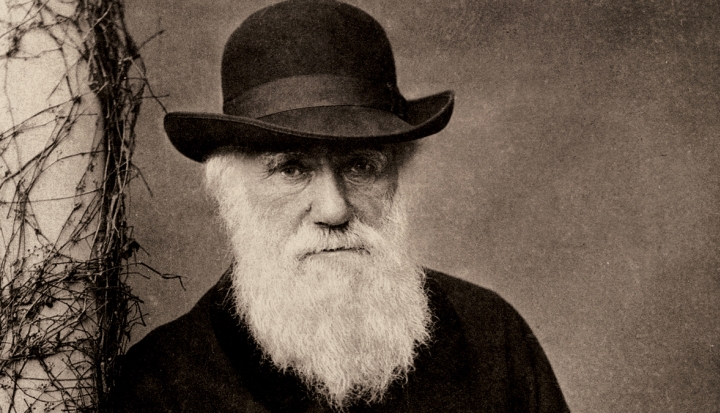I wonder what Charles Darwin would think of the fact that more than 150 years after he published On the Origin of Species, we have yet to evolve past the heated debates over science versus creationism. Earlier this month we had Bill Nye the Science Guy debating Ken Ham, founder of Kentucky’s Creation Museum. And now HBO joins the fun with its new documentary Questioning Darwin, director Antony Thomas’ look into the two distinctly different understandings of how human beings came to walk the earth.
In a film that clocks in at just under an hour, Thomas tries to cover a lot of ground–analyzing the deeply held religious beliefs of those who take the Bible as the literal word of God while also chronicling the journey of Darwin from a young man who almost became a priest of the Anglican church to the scientist who became nearly obsessed with studying the species that inhabited his world. While the biographical sketch contains some interesting facts and insight into Darwin’s life, it is the interviews with his critics that are the heart of Thomas’ film.
The arguments put forward by supporters of creationism are simple and straightforward, yet incredibly passionate and sincere: The universe can’t possibly be billions of years old because that isn’t in the Bible. Creation took six days, because Genesis says it did, and the world is actually about 6,000 years old. Dinosaurs roamed the Garden of Eden, and all the pain and suffering the world has seen through history are easily explained by original sin. All of the answers we need are right there in the Old Testament–and if you don’t believe it, you’re doubting God and thus are not a person of faith.
The idea that humans evolved from other animals is portrayed in Thomas’ film as being offensive to anyone who believes in God. One interviewee even laughs off the idea that human beings evolved through time from tiny organisms as being ridiculous, arguing that Genesis’ account of creation is the only one that makes sense. Besides, why would God create a world that needed billions of years to evolve instead of just making the world we know today over the course of a week?
Anyone who holds those beliefs would surely be quick to dismiss a story in the news today about scientists proving that some tiny crystals found in Australia in 2001 are 4.4 billion years old. According to a news report quoting geochemist John Valley of the University of Wisconsin, Madison, “The crystals formed just tens of millions of years after an early proto-Earth was melted by a violent impact with a Mars-sized object. The crash created the moon and turned our young planet into a red ball of molten rock. ‘It would have glowed almost like a star. Nothing could exist on the surface. There would be no continental land masses. There’d be no liquid water. And there certainly would have been no life at that time,’ says Valley.”
That’s a pretty impressive account of creation, and for me it highlights the biggest failure of Questioning Darwin: the lack of acknowledgement that science is, for some, perhaps the greatest evidence of God’s magnificent power. Though some people on both sides of the faith/science debate surely believe that the two sides are incompatible, many others (like Boston College theology professor Stephen Pope) find plenty of value for people of faith in the work of Darwin.
When we interviewed astonomer and former director of the Vatican Observatory Father George Coyne in 2012, he noted that a God who created a universe capable of evolving–without knowing or determining in advance what it might evolve into–is a marvel that science can never explain. “Since there are chance processes involved, it’s not completely knowable according to science,” says Coyne. “Does that limit God? Does that minimize God? I don’t think so. It glorifies God: God did not want to have something that was completely predetermined.”
So does the work of Darwin undermine God, or does it glorify a God who set this magnificently complex universe in motion? That’s a much more interesting debate to be had among people of faith, yet unfortunately it is one question on Darwin that Antony Thomas’ documentary fails to pose.
Image of Charles Darwin via Wikimedia Commons, public domain










